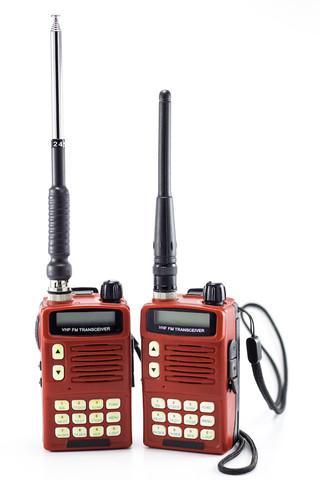
Let's face it, the greatest emergency communication device in history was Agent 86's shoe phone from the TV show, Get Smart.
Of course, that was 50 years ago. Communication has come a long way, but so have communication breakdowns.
In case of emergency, you need to have a clear plan of communication for your family. This includes having a communications director. Usually, this will be the head of the household, but it could also be the most telecommunications-savvy member. You’ll also need a prearranged meeting spot and an out-of-state phone contact, as well.
If an emergency or a natural disaster forces your family to split up, does everyone know what to do? What if the whole communications infrastructure hits the skids? Ithashappened, so itwillhappen again.
Besides keeping in touch with your family members and close friends, you'll also need to keep in contact with the outside world to get news, information, and evacuation or safety reports. Here's a primer for preppers who want to stay in touch.
Howdy, Neighbor
We can't stress this enough - the simplest form of communication you have in an emergency is talking to the people who live next door. Although many preppers are prepping to go it alone, your neighbors are your friends in need. Even if you don't care for your neighbors, you might like them better when they are able to help you in a life-or-death situation.
After a disaster hits, there's a good chance you won’t even be able to call the police or paramedics, so you and your neighbors will need to team up. There is definitely safety in numbers when it comes to helping the injured and rendering assistance to people who need it. This was proven after Hurricane Katrina and Hurricane Sandy when neighbors got together to help each other through those tragic acts of nature.
Hand-Crank Radio
In any emergency situation, you need a radio so that you can hear about traffic jams caused by people leaving town en masse or for warnings about the parts of town to be avoided. Keep a battery-powered radio in your bug-out bag, another in your vehicle, and one in every prearranged "safe place" you plan to gather. A hand-crank radio is the best because it can generate its own power indefinitely, yet a solar-powered radio will be of little use if you're barricaded indoors.
Cell Phones
Of course, your bug-out bag should contain a cell phone with a spare battery, but experience shows us that during recent earthquakes and calamities, cell phone service can be interrupted, so don't count on your smartphone in widespread emergencies. However, you can still purchase hand-crank cell phone chargers for renewable power.
Internet
Brace yourselves, preppers. If the power goes out, you won't be able to google what to do in a blackout. Yes, we know all your cool tablets and mobile devices are wireless, but with any glitch in the power grid, routers and transmitters will go down immediately.
CB Radios
Citizen's Band radios used to be a fun way to eavesdrop on conversations amongst truck drivers, but they still make sense in an emergency because they have a range of up to 20 miles and a variety of frequencies. Channel 9 is the emergency channel/frequency, and you can stay tuned to it for the latest updates. Also, some modern CB radios are Bluetooth compatible. In essence, a CB radio serves the same purpose in an emergency as a ham radio, but is much easier and cheaper to set up.
Police Scanners
Many preppers are convinced that a police scanner is a must-have communication device for surviving a major disaster. It lets you hear the news before it makes it to television, and it lets you hear what emergency personnel are doing all over town. If there are dangerous conditions in specific parts of the city, a police scanner will let you know. This should help you plan your escape wisely.
However you plan to stay in touch with family members and the outside world, the key to your success lies in preparation. Test out your emergency communication devices and then make sure to check them regularly.
Above all, don't count on any of your communication devices to work when you really need them.





